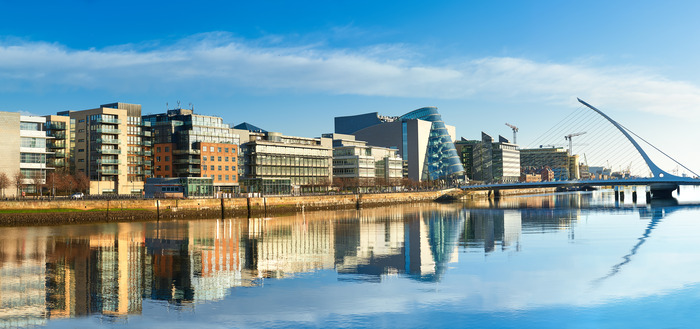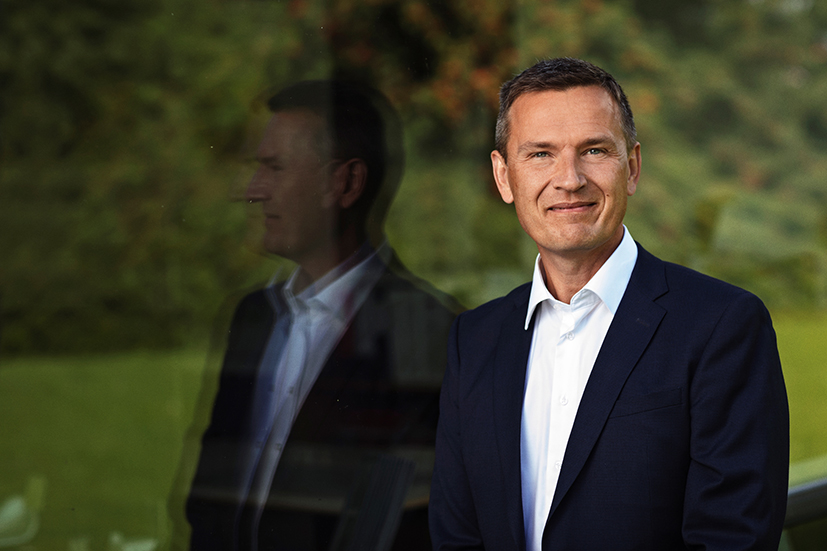In the latest edition of our CIO Spotlight, Natalie Tuck chats to AkademikerPension CIO, Anders Schelde, about his thoughts on Elon Musk, investing in the US, the fund’s decision to bring more investments in-house and its relatively new AlfaPension product
Tell me about your role at AkademikerPension.
I’m the chief investment officer and have been for a little more than seven years. Before that, I had the same role at the Danish division of Nordea Life & Pension, now known as Velliv. I run the investment team of around 30 investment professionals, and we have approximately €23 billion of assets under management.
AkademikerPension has announced that it’s giving Tesla one more chance to make some changes to its board. Another investor in Tesla, Ross Gerber, has called for Elon Musk to resign as CEO. What are your thoughts on that?
We have more or less divested our investment in Tesla, and we made a conditional exclusion of Tesla, but for now, we maintain a very small fraction of our previous investment. The reason is that we have a shareholder proposal at the upcoming AGM in June, and we would not be able to continue with that if we sold all our holdings. Our shareholder proposal concerns labour rights at Tesla, but I have to say that we are not hopeful that it will pass. Nevertheless, we think it’s an important issue that deserves the attention of the AGM and the board. In fact, I would say it’s a done deal that it won’t go through, so in effect, we have probably excluded Tesla.
In regard to Musk, it’s long been our view that we doubt whether Tesla would be better off with or without Musk. That was before what we’ve seen over the recent months; I’m no longer in doubt that Tesla would most likely be better off without Musk at the helm.
Musk is closely connected to Trump with his role in the US government. Trump has engaged in a trade war. How are you managing the volatility that’s been seen in the markets as a result?
There are two dimensions to this, I think. One is whether the changes in US politics and institutions impact your fundamental view on the US market. I don’t think we have concluded yet on that, and I think that’s also a long-term issue, but things are clearly moving in the wrong direction in my mind.
Right here, right now, however, we are more concerned with the way that the new US administration is handling things, for instance, the trade war. We used to think that Trump was very sensitive to the performance of the stock market, that there was the implicit ‘Trump put’ on the market, and thereby also the economy. It appears that it is no longer there, so recession risk has clearly gone up in the US.
At the same time, because of the actions in the US, you have the fiscal boost in Europe with defence spending and all. That, combined with the fact that Europe is simply so undervalued on most metrics, has led us, and I think many other investors, to tactically move from the US to Europe. We have only taken a small position on this, though, because right now we are also making some pretty fundamental changes to our equity strategy, and we do not want too many moving parts at the same time.
Focusing on your change in equity strategy, what was behind that decision and how much will still be actively managed once you complete all that?
The root cause is that, around a year and a half ago, we changed our pension product from one with constant, and relatively low, risk to a new lifecycle product. The implication of our new product, AlfaPension, is that, in particular, younger scheme members will have a bigger share of listed equities in their portfolio. All new scheme members will go directly into AlfaPension, and as we start to convert our members over the next two to three years, we expect our equity portfolio to go from DKK 40 billion to close to DKK 100 billion over the coming years.
Considering this, we concluded that we needed a new equity strategy that had more cylinders in the engine, so we have created a new strategy with three cylinders – internal passive, internal active and external active – with the aim of getting more scale in our asset management to absorb the inflow, more control from our side, lower cost and a more stable excess return.
We are still in implementation mode, but where we are now, we have terminated most of our external active mandates and brought the assets back in-house for passive management, and the next step is to start developing the two future actively managed cylinders.
What’s the split of members regarding that? How many are in that new AlfaPension?
Currently we have roughly one out of three members in the new lifecycle product because we were able to move some members to the new product automatically, so to speak, but it’s mostly young members with rather small savings, so it’s only one out of DKK 10.
Are older members going to transfer across?
We’re going to offer it to almost all our members, but for those already receiving a pension or if they have some specifics with their insurance policy, then it may not be the best option, but for most other members it will be a better choice of product. As said, we could transfer some members automatically, but for the remaining members, they have to make an active choice to convert to the new product, so we have to campaign for it, and we’ll do that in the coming years.
AkademikerPension is very active on ESG topics but has chosen to divest from oil and gas. How do you decide when engagement is more effective than divestment, especially in sectors crucial to the green transition?
Back in 2018, we made our initial major divestments from oil and gas companies, and since then, we’ve been expanding the scope of that divestment. Over the first couple of years, we made a lot of money from that decision, and then we lost most of it again, and now we’re back in a small plus, but it’s a long-term decision, so we live with that volatility.
How do we decide on engagement versus divestment? Well, it is very much about whether the problem relates to the conduct or the product of a given company. If management is accessible and responsive, and if it is about the conduct of the company, then there is more room for dialogue and active ownership. However, on the other hand, if it is about the fundamental characteristics of the product, then there is typically much less scope for active ownership and being able to make a change. It is difficult to ask ExxonMobile to stop digging for oil and gas, and British Tobacco not to make cigarettes.
Specifically, with regard to oil and gas companies, our conclusion was that there was no meaningful room for dialogue. That, combined with the fact that we saw large long-term investments risk in the sector, led us to exclude the oil and gas sector with little or no dialogue with most of the companies.
Another sector where I’ve heard you’re considering changing your opinion on is the defence sector. Are you currently invested in the defence sector? Are you changing your stance on this?
Yes, we are invested in defence and we are looking to invest more, but we are also somewhat handicapped in this regard as we have a rather long exclusion list in regard to defence companies.
The thing is, most Danish pension funds exclude companies involved in controversial weapons, but then the question becomes how to define controversial weapons and there’s some differences there in regard to nuclear weapons. Some funds say that nuclear weapons are ok as long as the companies act within the UN non-proliferation treaty, others like us, have a stricter interpretation.
We see nuclear weapons as problematic in general because they kill indiscriminately like other controversial weapons, so we also ban companies that are linked to nuclear weapons, and that in effect leads to much longer exclusion list, because a lot of the defence companies have some kind of involvement in the nuclear weapon programmes. It might not be big for them, but it is there.
So many Danish pension funds have quite long exclusion lists in regard to the defence sector, but I think it’s fair to say we, and I guess all the other Danish pension funds, are considering whether we should adjust our approach here, given the new global security situation.
We want to act as responsible investors, and maybe the more responsible thing here is to support freedom and democracy. It’s a very difficult discussion. We’ve been having that discussion for three years now with our members. I’m sure we’ll discuss it again now in the aftermath of Trump’s re-election, and then after that, maybe the Board will adjust our position. We’ll see.
As a member-owned pension fund, do your members have a big impact on your decisions on topics like that?
Yes. It’s their money and we are very humbled by that fact. We want to manage their money in accordance with their values, and we believe we can do so because we think we have a very democratic business model where you’re able to make yourself heard. For instance, you can do so at the annual general meeting or even on the Board, as half of the Board is elected directly among our scheme members, where they campaign on their own individual platforms, which is often very much about responsible investing. We also engage with our members on an ongoing daily basis through SoMe, email, webinars, etc., and by using all these channels, we try to get a sense of the views and values of our members and manage their money accordingly.
Moving on to AlfaPension, you announced with your annual results that you were going to be adjusting the risk profile slightly in regard to two of the risk profiles. What was behind your decision to do that?
That is correct. AlfaPension has three risk profiles, low, medium and high risk, and late last year, when we had been running the product for a year, we could just see that the actual return on high vs. the low risk profile was too small considering the strong bull market we had in 2024. In addition, we also noted that our peers in the Danish pension market generally had more disparity between their risk profiles than we had, and we would like our product to be market conform, so we increased the risk in high risk, and we lowered the risk in low risk.
In terms of investment management, how do you decide which asset classes stay in-house and which are outsourced?
Except for Danish real estate, practically all of our unlisted assets are outsourced because we don’t have the competencies to run that ourselves. Will continue down that road, but we are looking to add more co-investment to our portfolio as to become more cost efficient.
Within the listed asset classes, we have always had the Danish bonds and Danish equities inhouse and then for a number of years we’ve gradually taken a few more other asset classes inhouse.
We’ve built a few global actively managed equity strategies and an emerging market debt strategy, and we will continue in that direction taking things internally as we grow bigger. As said, the most recent change is to bring most of our global equity mandates back inhouse into a new passive mandate, and then next step is to develop further on our internal active equity management, but also to find new external active mandates, so that we can redeploy some of those funds back into active management.
Increased passive management seems to be on trend at the moment.
Yes, but I think many funds decide to us external passive management, and we could probably also save, I don’t know, a 1 or 2 basis points if we had selected an external manager for this, but for us it’s really important to maintain full daily control of all our assets and be able to implement our own execution list and have our proxy voting on all of our assets, so we think that it’s worth the price to have it internally.
Looking over the longer term, what do you see the biggest risks and opportunities shaping pension fund performance?
I think all my career, and I’ve been in this industry since ’89, so it’s more than 35 years, the only thing I’ve seen is that markets are getting bigger and more integrated. We have expanded our investment portfolios, which have become much more global, and today I find myself in a situation where I, for instance, follow the US news flow much more closely than the local news flow. I think one big change that might be coming, and I think we’re all discussing this, is whether we’re moving to a much more multi-polarised world and what that will mean for capital markets, if not now, then down the road in 5-10 years' time.
I’m not sure it will mean anything, but just the fact that you are starting to ask yourself, will it mean anything is significant. Could there be a reversal of the globalisation of capital markets? Will the USD remain a global reserve currency, will we ultimately see capital controls come back and so on? These are truly big and fundamental questions, which could have profound implications on the way we invest.
Latest News
-
Women’s average pension in the EU 24.5% lower than men’s in 2024
-
More than one million Dutch retirees given pension increase since transition
-
News in brief: 27 February 2026
-
Sweden's AP3 reports 'record high' fund capital of SEK 577.1bn in 2025
-
NBIM ‘aiming to be a leader’ in managing climate change risks and opportunities
-
Nature capital now a 'mainstream asset' for UK pension funds
Podcast: Stepping up to the challenge

In the latest European Pensions podcast, Natalie Tuck talks to PensionsEurope chair, Jerry Moriarty, about his new role and the European pension policy agenda
Podcast: The benefits of private equity in pension fund portfolios

The outbreak of the Covid-19 pandemic, in which stock markets have seen increased volatility, combined with global low interest rates has led to alternative asset classes rising in popularity. Private equity is one of the top runners in this category, and for good reason.
In this podcast, Munich Private Equity Partners Managing Director, Christopher Bär, chats to European Pensions Editor, Natalie Tuck, about the benefits private equity investments can bring to pension fund portfolios and the best approach to take.
In this podcast, Munich Private Equity Partners Managing Director, Christopher Bär, chats to European Pensions Editor, Natalie Tuck, about the benefits private equity investments can bring to pension fund portfolios and the best approach to take.
Mitigating risk
BNP Paribas Asset Management’s head of pension solutions, Julien Halfon, discusses equity hedging with Laura Blows
© 2019 Perspective Publishing Privacy & Cookies








Recent Stories